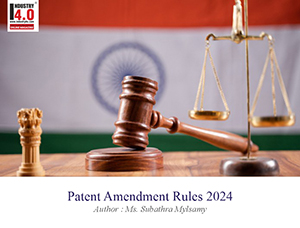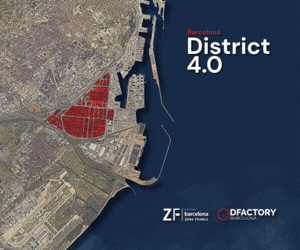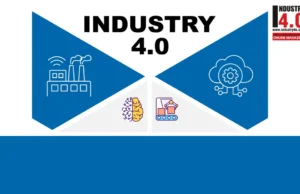BRIDGING DISPUTES : A COMPREHENSIVE EXPLORATION OF
THE MEDIATION ACT, 2023
INTRODUCTION
Mediation has deep roots in India, historically serving as an effective mechanism for amicable dispute resolution outside the courtroom. Alongside arbitration, judicial settlement, and conciliation, mediation is formally recognized under the Code of Civil Procedure, Section 89(1), as a recommended method of alternative dispute resolution. Mediation did not gain enough popularity in India despite its encouragement as it lacked a legal structure and recognition.
The Central Government enacted the Mediation Act, 2023, to address these issues and promote mediation, on September 14, 2023. This legislation aims to facilitate timely and cost-effective mediation, enforce mediated settlement agreements, and institutionalise mediation practices, with particular emphasis on online and community mediation. The Act also provides for the establishment of a regulatory body to oversee the registration of mediators and mediation institutions.
Mediation is characterised by its flexibility, informality, voluntariness, and confidentiality. As highlighted by the Parliamentary Standing Committee on Personnel, Public Grievances, Law and Justice (2021), mediation is often more cost-effective than litigation, helps maintain amicable relationships between parties, and allows them greater control over the dispute resolution process. The Mediation Act safeguards these core features – confidentiality, self-determination, and voluntariness – effectively.
Additionally, even prior to the legislation coming into force, the concept of mediation has been embraced by the Indian Judiciary as can be seen from various judgements namely Moti Ram v. Ashok Kumar (2011) 1 SCC 466, where it was held that an unsuccessful mediation report should only state, “Mediation has been unsuccessful.” Furthermore, in the recent case of Expeditious Trial of Cases under Section 138 of N.I. Act 1881, In re, 2022 SCC OnLine SC 649. The court stated that “in the event that the accused indicates willingness to settle at the stage of trial before the Special Court, the presiding officer must refer the case to time-bound, online Mediation before one of the identified mediators to prevent further delays.”

NAVIGATING CHALLENGES: OBSTACLES TO EFFECTIVE MEDIATION
Mediation holds significant potential to transform dispute resolution in India especially after the formulation of the Mediation Act, 2023. However, there are certain concerns in the legislation that have been discussed below, which may require a detailed approach in the Mediation Rules.
A primary concern is the definition of who qualifies as a mediator. The Act allows for any person to be appointed as a mediators by the parties or mediation service providers, including those registered as a mediator under the Council. If due care is not given to ensure the quality of mediators in practice, it may lead to a dilution of the professional standards and in turn undermine the credibility and reliability of the mediation process itself.
Another issue is the extensive list of exclusions under Schedules I and II. For instance, excluding minors and individuals of unsound minds from mediation denies them easy access to justice. The Act’s overriding effect on the Prevention of Sexual Harassment (POSH) Act fails to address the need for confidentiality and privacy in sensitive sexual harassment cases.
Furthermore, even though community mediation is expressed in the Act, there are no provisions mentioned for its enforcement. Section 44(4) states that a settlement arrived through community mediation is for maintaining peace, harmony, and tranquillity and does not hold the same value as a judgment or decree of a civil court. This in turn may not entice the stakeholders to consider community mediation thereby hindering its preference over litigation.
The Mediation Act prescribes a period of 120 days +60 days as time limit for for challenging a Mediation Settlement Agreement. The grounds of challenge of a Mediation Settlement Agreement includes fraud and corruption as well. It may be a possibility that the knowledge of the fraud or corruption may come to the notice of the party well beyond 180 days window for challenging a Mediation Settlement Agreement. In this scenario, it may be worthwhile to have further clarity in the Mediation Rules being formulated as to whether a party can challenge Mediation Settlement Agreement beyond the prescribed period from the date of knowledge of fraud or corruption in relation to the mediation proceedings.
Furthermore, Section 7 of the Mediation Act, which deals with the power of the Court of the Tribunal to pass a suitable interim order to protect the interest of any party in mediation, is extended only to the court-annexed mediation process and it has not specifically considered a similar provision to protect the interest of any party in case of a private mediation.
CONCLUSION
The Mediation Act of 2023 represents a significant step forward in institutionalising mediation in India. It introduces essential measures for voluntary pre-litigation mediation and the enforcement of mediated agreements. However, the Act also presents challenges and contradictions that need to be addressed. Overall, it lays a strong foundation for the future development of mediation laws and practices in India, contributing to a more efficient dispute resolution system and reducing the burden on the judiciary.
About the author :

Ms. Subathra Mylsamy BA.MA.BL.LLM (UK)
Managing Partner
A.K.Mylsamy & Associates LLP

Ms. Subathra is an experienced Partner with a demonstrated history of working in the legal services industry. Ms. Subathra is skilled in International Law, Legal Assistance,Legal
Research, and Legal Writing. Ms. Subathra has done her Master of Laws (LLM) focused in International Business law from The University of Manchester.
Brief Profile of Ms. Subathra Mylsamy :
Ms. Subathra Mylsamy can be contacted at :
About A.K.Mylsamy & Associates LLP :
A.K.Mylsamy & Associates LLP [‘AKM’], is a distinguished Full-Service Corporate Law Firm celebrating its 60th year of practice.
At AKM, we offer a comprehensive range of services encompassing Litigation, Advisory, and Transactional expertise.Evolving our services to meet the needs of our clients, we’ve pioneered in corporate law as a one stop destination covering Commercial, and Civil Law, with a keen focus on Mergers and Acquisitions, Structuring, Recoveries, Insolvency & Bankruptcy, Direct and Indirect Taxes, handled by a seasoned team of former ‘Indian Revenue Service’ officers. Additionally, we excel in Contracts, Intellectual Property Rights to Technology laws, Cyber security , Data Privacy, Energy and Sustainability laws and many more.
A.K.Mylsamy & Associates LLP is a strong foundation of quality, competency, commitment and ethics, which have translated into the firm’s exponential growth and high reputation. Our team of experts, who have enviable experience in their related fields, provides efficient and prompt delivery of legal solutions that works best for your business.
A.K.Mylsamy & Associates LLP set very high standards of professionalism for ourselves and achieve the same with a meticulous, scientific approach and a high degree of professional integrity. We seek long-term relationships with clients and provide the best comprehensive solutions.
Team A.K.Mylsamy & Associates LLP
A.K.Mylsamy & Associates LLP Partners Profile
A.K.Mylsamy & Associates LLP can be contacted at :
LinkedIn | FaceBook | YouTube | Website | Website2
A.K.Mylsamy & Associates LLP News Letters :
” The Lawtree “ is a News Letter brought out in a simple and creative manner bringing out Legal Updates for the public awareness. ” The Lawtree “ has recently Published there 100th Edition.
![]()
“QIkcee” one minute read is an exclusive Intellectual Property Newsletter.
 Disclaimer: The above Article is for educational purposes only. Opinions or points of view expressed in this article represent the view of the author.
Disclaimer: The above Article is for educational purposes only. Opinions or points of view expressed in this article represent the view of the author.
Also read Ms. Subathra Mylsamy’s earlier article :

















